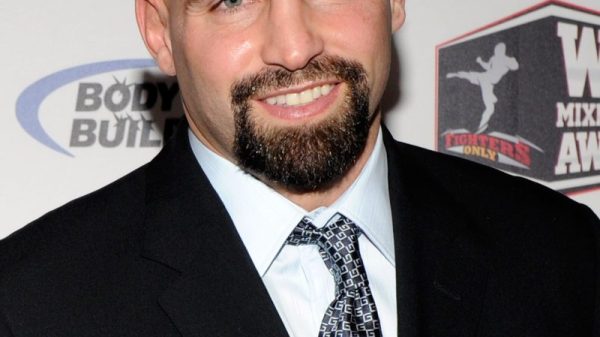JD Vance, Donald Trump’s newly minted running mate, has posted his life on the internet for nearly two decades.
In 2005, while serving as a combat correspondent in Iraq, he started a blog. In 2012, he created his first public Spotify playlist, “Making Dinner,” which featured Backstreet Boys, Justin Bieber and Florence + The Machine. His Venmo account was public too, according to a report by Wired (his “friends” on the payment app included Tucker Carlson). He tweeted (and deleted). He Yelped. He started a second blog.
As the first major-party vice-presidential nominee from the millennial generation, Vance, who turns 40 on Friday, is also the first who grew up with the option of posting his every thought and feeling — his favorite music, his reviews of random businesses (“one of the best restaurants in Cincinnati or anywhere”), even his reflections on Game of Thrones (“I’m no Sun Tzu but color me skeptical of going after the supplies instead of the army”) — on the internet for all to see.
And like other millennials, Vance was a sort of internet pioneer, embracing new platforms (Financial transactions can be shared with friends? Cool!) without much apparent trepidation.
Younger Americans — members of Gen Z and Gen Alpha — were born into a world shaped by social media. But Vance and his contemporaries were born before social media existed, joined it as teens or young adults, and became the first generation to discover how what they posted could affect their lives and careers decades later.
Now Vance is becoming the first millennial to discover what it’s like to run for the vice presidency after a life lived online. Like many nominees before him, Vance made controversial comments on television and in public before joining the ticket that are now being reported in the press. But his pre-politics online presence is novel.
“Millennials have been moving through the professional world with this long digital trail. People have managed to make careers for themselves despite all the weird stuff they did when they were younger,” said Whitney Phillips, assistant professor of digital platforms and ethics at the University of Oregon. “But having this be a vice-presidential nominee is a very different kind of job than your average job. It raises the stakes, it raises the visibility.”
Many internet users — including some of the more “tech savvy and smart” millennials — began making more of their online content private around 2016, according to marketing generalist consultant Carissa Estreller.
Vance didn’t seem to catch that wave, although he did delete some tweets — his reactions to “Game of Thrones,” for example. His campaign declined to comment for this story but did not dispute the accounts were his.
The Republican vice-presidential nominee has faced criticism in recent weeks for his past comments on childless Americans and his transformation from a Trump critic to the former president’s running mate. Vance has moved to the right over the course of his political career and expressed shifting positions on gender, sexuality and race. These thoughts, too, were caught online, including in posts (“I’ll stop calling people ‘groomers’ when they stop freaking out about bills that prevent the sexualization of my children”) and text messages that have been released by onetime friends.
“Part of the reason that people are scouring his online data trail is because of some of the more political positions he’s taken. It basically creates a target sign of what people would be looking for,” Phillips said. “Totally, there’s stuff from his past that’s getting kicked up to the surface, but the reason there’s interest is because of what he’s saying as an adult, and that sort of makes everything else retrospectively relevant to the conversation.”
Perhaps the most notable examples of Vance’s unrestrained millennial embrace of internet un-privacy — still public as of this writing — are canine in nature: In 2012, his dog, Casper, “created” a Facebook account.
Vance and his wife, Usha, adopted the puppy during their time at Yale Law School, said Dan Driscoll, a friend who overlapped with the couple for several years at Yale and now serves as a senior adviser to Vance’s campaign.
“I’m not sure who to vote for,” “Casper” posted in 2012. “I dislike Mitt Romney’s policies on dogs riding in cars, but I recently discovered that Obamacare doesn’t cover preexisting conditions for dogs. Is Ralph Nader running?”
Driscoll recalled the pair as extraordinarily devoted to the dog, heading home in the middle of every day to walk him and stepping in without complaint to clean up the pup’s frequent messes. Vance even carried the dog around on his chest in a carrier. Casper had some sort of esophageal problem, Driscoll said, leading the dog to vomit almost constantly.
“Casper … would just throw everything up on the floor, it made their house stink and it was constant,” Driscoll said. “I just remember [JD] constantly on his hands and knees cleaning that up.”
According to Vance’s Yelp profile, the couple’s canine struggles continued into 2022, nearly a decade after the couple graduated from Yale.
Vance rated a veterinary clinic in Cincinnati one star for its handling of a “sudden, serious” issue, calling it “one of the worst customer service experiences in the city.” (Vance didn’t love his experience with a babysitting service in the city, either.)
Casper is also, apparently, well read. A Goodreads account connected to Vance is named for the German shepherd. Among Casper’s top-rated books are Clarence Thomas’s memoir “My Grandfather’s Son,” “The Screwtape Letters,” “God and Man at Yale” and, of course, Vance’s own “Hillbilly Elegy.”
The abundance of online material available from Vance’s past can give voters “the illusion” of increased transparency and a sense that they know him better than other candidates, said Alex Turvy, who studies internet culture.
But in reality, “we might actually know less, because we’re distracted by the things we’re seeing there,” Turvy added. “With so much information available, it’s really easy to folks to cherry pick stuff. The ability to selectively pay attention to stuff could decrease folks’ willingness to consider a comprehensive view of him.”
Meryl Kornfield, Hannah Natanson, Aaron Schaffer and Chris Dehghanpoor contributed to this report.



























